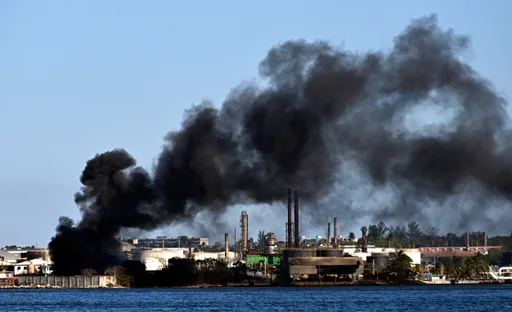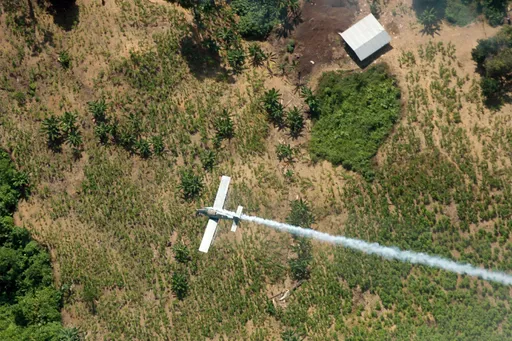French President Emmanuel Macron arrived in Saudi Arabia late Thursday for talks with the kingdom's powerful crown prince on the rising tensions between Tehran and Riyadh.
Macron, on his debut visit to the Middle East, made the surprise announcement at a news conference in Dubai that he would meet Crown Prince Mohammed bin Salman amid rising tensions between Saudi Arabia and Iran, notably over Lebanon and Yemen.
Macron, on a visit to the United Arab Emirates, declined to discuss a wave of high-level arrests for corruption in Saudi Arabia, but said it was vital to work with the kingdom for the stability of the region and to fight terrorism.
He said that the decision to go to Riyadh had been made on Thursday morning, and that his talks with the prince would include "regional questions, in particular Yemen and Lebanon."
Two top Lebanese government officials said on Thursday that Riyadh was holding Lebanon's Saad Hariri captive. A third government official told Reuters that the Saudi authorities had ordered Hariri to resign while he was in Riyadh last weekend, and put him under house arrest. Saudi Arabia has denied that he is under house arrest, but Hariri himself has not denied that his movements are being restricted.
France has close ties with its former colony and in particular Hariri, who is also a French citizen and spent several years in France. Macron said there had been informal contacts with Hariri, but no request to transfer him to France.
He said he would "emphasise the importance of Lebanese stability and integrity" in his talks in Riyadh, adding: "My wish is that all Lebanese political officials live freely in Lebanon ... which means having a very demanding stance on those who could threaten any leader."
In recent years, France has been able to nurture new links with the Gulf Arab region due to its tough stance on Iran in nuclear negotiations, and the broad similarity of their policies on conflicts across the Middle East.
Strong concerns
In Yemen, the Saudi-led military coalition fighting the Houthi movement said on Monday it had closed all air, land and sea ports to stem the flow of arms to the Houthis from Iran.
The United Nations said the move risked causing "the largest famine the world has seen for many decades, with millions of victims."
Macron said he would insist to Crown Prince Mohammed that Riyadh must open the borders to allow humanitarian access.
On Iran, Macron repeated that he wanted to keep the landmark 2015 nuclear deal, which US President Donald Trump has challenged.
But he said he was "very concerned" by Iran's ballistic missile programme, mentioning a missile fired from Yemen and intercepted by Saudi Arabia on Saturday, and raised the prospect of possible sanctions with regard to those activities.
"There are extremely strong concerns about Iran. There are negotiations we need to start on Iran's ballistic missiles," he said.
"Like what was done in 2015 for the nuclear activities, it's necessary to put a framework in place for Iran's ballistic activities and open a process, with sanctions if needed, of negotiation that would enable (that)."
Iran has denied providing ballistic missiles to Yemen's Houthi rebels and says its missile programme is purely defensive and should not be linked to the nuclear deal.
Macron reaffirmed his intention to go to Iran as part of efforts to talk to all the actors in the region, but warned about decisions that could destabilise the region further.
"Iran is a regional power ... there should be no naivety in terms of Iran, it is about standing beside our allies, in particular the United Arab Emirates, but it is about not having any policy that could create imbalances, conflicts in the region."






















